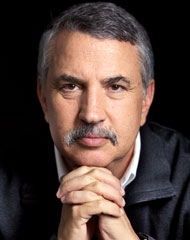The NYT/IHT has an in-depth story describing how life — and political views — have changed in the Thai countryside over the last 50 years:
As campaigning for the national election Sunday entered its final days, there was broad consensus that rural votes would be crucial in deciding the outcome. But no one is quite sure what rural means anymore.
The piece covers a lot of ground, but one element that may be of particular interest is the description of villagers’ international experiences:
Villagers here complain of slow Internet download speeds. On a single street that winds past rice paddies, residents tell of work stints in Taiwan, Singapore, Israel and Saudi Arabia, enough frequent-flier miles to rival the inhabitants of a tony Bangkok condominium.
And later:
Every family has someone who has gone to work in Bangkok or abroad, says Nirand Nammontri, the owner of a grocery store in Baan Nong Tun who built her house with money that her husband made working at a printing factory in Taiwan.

![Bangkok's Khao San Road Goes Upscale [NY Times illustration]](http://farm2.static.flickr.com/1420/1169556586_b66cfdd6cb_m.jpg)